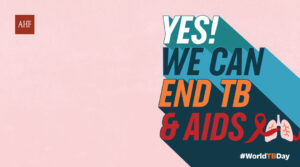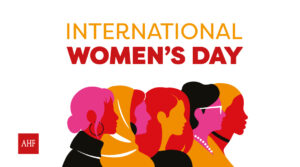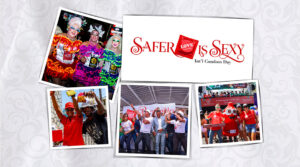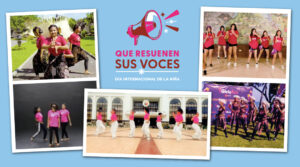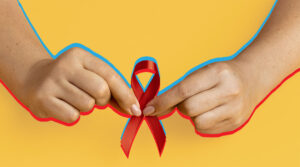Kundai Chinyenze, originaria de Zimbabue, perdió a su madre y a su padre a causa del sida, cuando ella era una adolescente. Hoy, a los 44 años de edad, forma parte de la mayor iniciativa global para encontrar una vacuna capaz de frenar el VIH.
Pero no siempre fue su sueño convertirse en médica. Cuando era niña quería ser ingeniera química. Su madre, quien era enfermera, le dijo que era mejor que estudiara medicina, aunque a Kundai no le gustó la idea.
Hasta que un día, cuando tenía 16 años, su madre fue internada en un hospital de Hirare, la capital de Zimbabue. Cuando fue a visitarla, escuchó a las enfermeras murmurando a sus espaldas: “ella es la hija de la mujer con sida”. En ese momento se enteró de que su madre vivía con VIH.
Momento decisivo
“Me sentí destruida”, recuerda Kundai, entrevistada por el diario británico The Guardian. “Todo lo que sabía era ‘lo tienes, estás muerto’, y no entendía mucho más allá de eso”.
La chica esperó para encontrarse con el médico tratante y preguntarle al respecto, pero él sólo atinó a decirle “no hablamos de esto con los niños”. La sensación de dolor y enojo la hizo tomar una decisión: convertirse en doctora y aprender todo lo que pudiera acerca del VIH.
Su madre murió poco después de este incidente, y dos años después sucedió lo mismo con su padre, también por complicaciones relacionadas con el sida.
Con el paso del tiempo, Kundai cumplió su objetivo de convertirse en médica y en 2002 ayudó a establecer la primera clínica especializada en VIH en su país. Sin embargo, para ese momento los tratamientos antirretrovirales, que desde 1996 habían demostrado ser útiles para frenar el avance del virus, no estaban disponibles en Zimbabue. “Fueron días oscuros”, recuerda, “en el instante en que tenías el diagnóstico, era una sentencia de muerte”.
Un nuevo rumbo
Ante este panorama, donde no tenía las herramientas para tratar, la doctora Chinyenze comenzó a investigar sobre la prevención del VIH, lo que eventualmente la llevó al área de las vacunas.
Hoy en día radica en el Reino Unido y forma parte de la Iniciativa Internacional para la Vacuna contra el Sida (IAVI, por sus siglas en inglés), donde colabora en el Laboratorio de Inmunología Humana, situado en el hospital de Chelsea y Westminster, en Londres.
También dentro de IAVI es jefa de equipo en el programa ADVANCE, un acuerdo cooperativo de diez años de duración con el gobierno de Estados Unidos a través del Plan de Emergencia del Presidente de EE. UU. para el Alivio del Sida (PEPFAR, por sus siglas en inglés), una estrategia de financiamiento que en enero pasado cumplió 20 años de haber sido creada por expresidente George W. Bush.
El gran reto
Kundai Chinyenze se enfrenta todos los días a un panorama desafiante y lleno de decepciones. Explica que nadie se ha curado de la infección porque “el cuerpo, por sí mismo, no sabe cómo recuperarse del VIH”. Es así que “ya que no tienes un modelo humano de recuperación, (con una vacuna) estás tratando de enseñarle al cuerpo algo que no ha descifrado cómo hacer naturalmente”.
Aun así, lo que mantiene motivado al equipo de investigación es el saber que, a pesar de todos los avances en la prevención del VIH (el tratamiento que evita la infección, el éxito de la terapia antirretroviral para que una persona no pueda transmitir el virus), todavía hay una epidemia, una gran cantidad de nuevas infecciones y personas que mueren todos los días.
Aún hay mucho por hacer, pero Chinyenze está determinada a que las y los científicos africanos jueguen un papel mayor en el trabajo contra el VIH. “Es crucial que la investigación del VIH deje de ser un dominio de los países desarrollados que no necesariamente viven la realidad ni la ven en sus contextos, e incluir a los científicos y las comunidades de las áreas afectadas, quienes entienden la urgencia”, afirma.
Con el trabajo de científicas como Kundai Chinyenze, la búsqueda de una vacuna seguirá con entusiasmo. Mientras tanto, la protección frente al virus está en tus manos. En AHF América Latina y el Caribe trabajamos para acercarte las herramientas necesarias: pruebas de detección gratuitas y condones sin costo. Localiza nuestras oficinas en tu país y conoce todos nuestros servicios.
